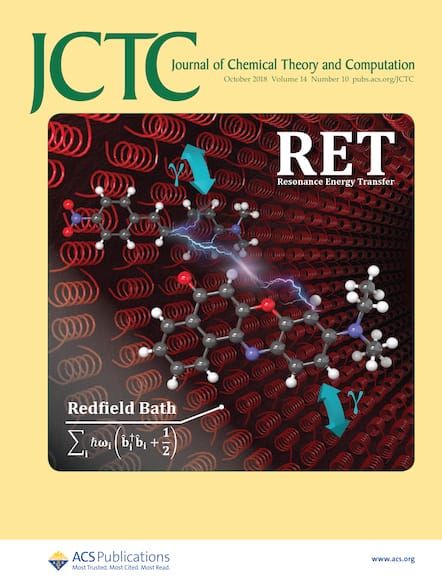Acceleration of Self-Consistent Field Calculations Using Basis Set Projection and Many-Body Expansion as Initial Guess Methods.
IF 5.5
1区 化学
Q2 CHEMISTRY, PHYSICAL
引用次数: 0
Abstract
In Self-Consistent Field (SCF) calculations, the choice of initial guess plays a key role in determining the time-to-solution by influencing the number of iterations required for convergence. However, focusing solely on reducing iterations may overlook the computational cost associated with improving the accuracy of initial guesses. This study critically evaluates the effectiveness of two initial guess methods─basis set projection (BSP) and many-body expansion (MBE) on Hartree-Fock and hybrid Density Functional Theory (B3LYP and MN15) methods. We also introduce a new approach, a hybrid of MBE and BSP. Our assessment considers both the number of SCF iterations and the total computational wall-times. The results demonstrate that BSP, MBE, and the hybrid method could significantly outperform the conventional superposition of atomic densities (SAD) technique. With these methods, reductions in total wall-time, including the time spent generating initial guesses, by up to 21.9, 27.6, and 21.6% could be observed with HF, B3LYP, and MN15, respectively, when tested on systems containing up to 14,386 basis functions. Furthermore, we also examine the influence of these initial guess schemes on difficult-to-converge metalloprotein and triplet electronic states. Speedups could be observed with non-SAD approaches although in the case of triplet electronic states, higher convergence failures could be observed.用基集投影和多体展开作为初始猜测方法加速自洽场计算。
在自洽域(SCF)计算中,初始猜测的选择通过影响收敛所需的迭代次数,在确定求解时间方面起着关键作用。然而,仅仅关注于减少迭代可能会忽略与提高初始猜测的准确性相关的计算成本。本研究批判性地评估了两种初始猜测方法──基集投影(BSP)和多体展开(MBE)在Hartree-Fock和混合密度泛函理论(B3LYP和MN15)方法上的有效性。我们还介绍了一种新的方法,即MBE和BSP的混合方法。我们的评估考虑了SCF迭代的次数和总计算时间。结果表明,BSP、MBE和混合方法可以显著优于传统的原子密度叠加(SAD)技术。使用这些方法,在包含多达14,386个基函数的系统上测试时,HF、B3LYP和MN15的总时间(包括生成初始猜测所花费的时间)分别减少了21.9%、27.6%和21.6%。此外,我们还研究了这些初始猜测方案对难以收敛的金属蛋白和三重态电子态的影响。虽然在三重电子态的情况下,可以观察到更高的收敛失败,但非sad方法可以观察到加速。
本文章由计算机程序翻译,如有差异,请以英文原文为准。
求助全文
约1分钟内获得全文
求助全文
来源期刊

Journal of Chemical Theory and Computation
化学-物理:原子、分子和化学物理
CiteScore
9.90
自引率
16.40%
发文量
568
审稿时长
1 months
期刊介绍:
The Journal of Chemical Theory and Computation invites new and original contributions with the understanding that, if accepted, they will not be published elsewhere. Papers reporting new theories, methodology, and/or important applications in quantum electronic structure, molecular dynamics, and statistical mechanics are appropriate for submission to this Journal. Specific topics include advances in or applications of ab initio quantum mechanics, density functional theory, design and properties of new materials, surface science, Monte Carlo simulations, solvation models, QM/MM calculations, biomolecular structure prediction, and molecular dynamics in the broadest sense including gas-phase dynamics, ab initio dynamics, biomolecular dynamics, and protein folding. The Journal does not consider papers that are straightforward applications of known methods including DFT and molecular dynamics. The Journal favors submissions that include advances in theory or methodology with applications to compelling problems.
 求助内容:
求助内容: 应助结果提醒方式:
应助结果提醒方式:


